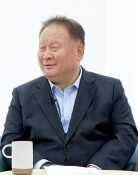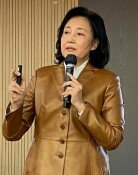Reverse-discrimination against Korean app developers
Reverse-discrimination against Korean app developers
Posted August. 28, 2018 08:17,
Updated August. 28, 2018 08:17
Application developers at home and abroad are poised to leave Apple- and Google-dominant app markets, in opposition to their unfair business practice including spikes in fees. The two global tech companies charge application developers 30 percent of sales in commission for 10 years. It is way over the developers’ proceedings from their applications – 15 to 20 percent. Using their monopolistic status, Apple and Google have put application developers at a disadvantage by making them less exposed to customers or forcing them on executing application market ads. In response to their overuse of power, gaming companies at home and abroad are considering using Android-based markets or their mobile pages as an alternative platform to provide applications to customers.
With increasing complaints of application providers, the Fair Trade Commission (FTC) carried out an investigation over Google for three weeks regarding the allegations of overuse of market influence, at Google Korea’s headquarters in southern Seoul. According to the Korea Mobile Internet Business Association, Apple, Google and One Store accounted for 60.7 percent, 24.5 percent and 11.6 percent, respectively, of last year’s application market shares in Korea. With the net value of transactions around eight trillion won, the Google application market makes up 4.881 trillion won. With a 30 percent fee applied in the equation, it is speculated that Google earned as much as 1.464 trillion won. Global tech companies including Apple and Google have been able to make an excessive profit in the domestic market. It is partly because that the state trade agency has turned a blind eye to "reverse- discriminatory" regulation favoring non-Korean tech companies.
In 2013, the FTC concluded that Google was innocent of the allegation that it opted for an Android-run smartphone search engine, excluding its Korean competitors such as Daum and Naver. Three years later, Google and Apple increased their market influence constantly, which made the agency review the case, but any following measure has not been taken yet. Meanwhile, Google has expanded its service range encompassing the search engine, the video-playing application and the mailing service, dominating the overall market. On the other hand, the European Union imposed last month a fine of 4.34 billion euros or 5.7 trillion won on Google, which was charged of overusing its market influence in the Google-operated Android market, which accounts for 80 percent of the world’s smartphone market.
The FTC should not neglect any disturbing practice that can keep Korean application developers from entering the market as well as hinder fair competition. FTC Chairman Kim Sang-jo said in a June interview with the press that the agency was considering measures to regulate unfair business practice such as Facebook or Google’s monopoly of information. Reverse-regulation has to be resolved, which has given an unfair advantage to such global tech giants.







